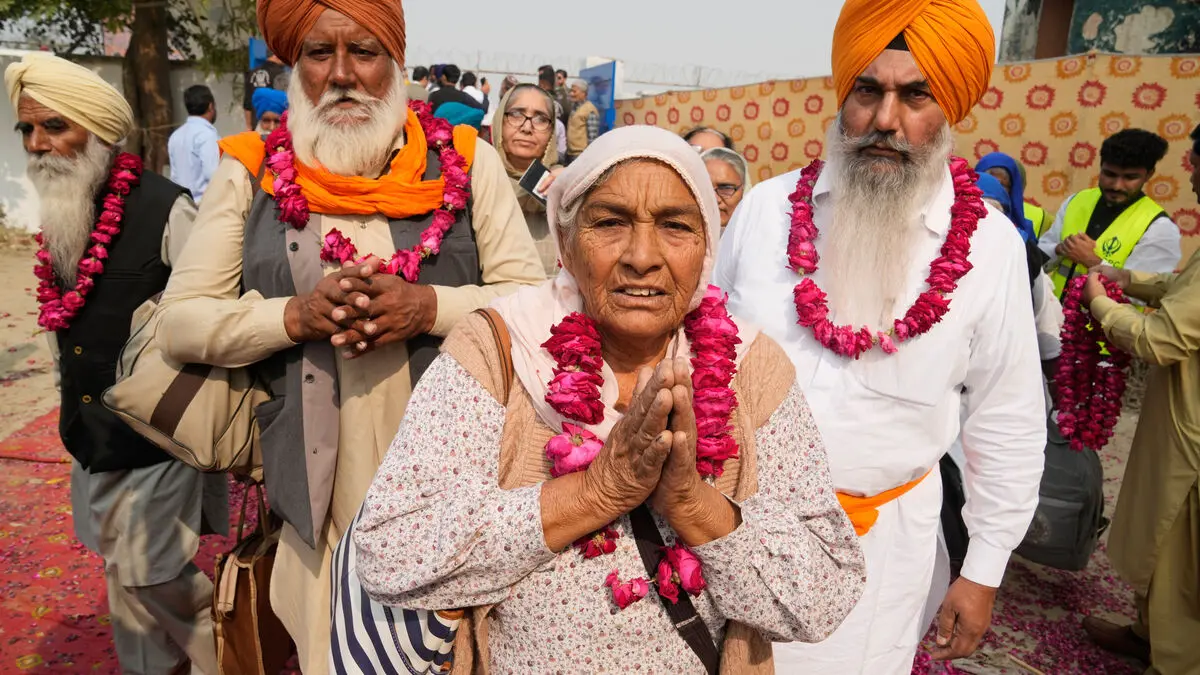Groups of Sikhs queued up on Tuesday morning at the large Wagah-Attari border crossing in the north, which is the only land route between India and Pakistan. When they emerged on the other side, they were greeted by Pakistanis handing out flowers and throwing rose petals.
More than 2,100 Indians will be granted visas to participate in a 10-day religious festival, Pakistan's diplomatic mission in New Delhi announced last week. According to Indian media reports, about 1,700 people are expected to make the pilgrimage.
On the verge of spring
The opening of the border crossing and allowing passage can be seen as a conciliatory measure. The border was closed again in May, when the two nuclear powers' long-running conflict boiled over into four days of fighting that was the worst in decades.
At least 70 people were killed in clashes where rockets, drones and artillery were fired at positions in disputed and tense border areas.
According to Pakistan, the decision to open the border was taken to promote harmony and understanding between religions and cultures. In India, the government is reported to have given permission to select groups to travel.
Guru's Birthday
The Sikhs will celebrate the 556th anniversary of the birth of Sikhism's founder and first guru, Guru Nanak. Many people will travel to the place where he was born, Nankana Sahib, which is one of the religion's most sacred shrines.
Sikhism originated in the 15th century in Punjab – an area that is today divided by the more recent national border between India and Pakistan. The border was drawn in connection with the fall of British colonial rule, and above all with regard to religious dividing lines: a Pakistan with a Muslim majority and an India with a Hindu majority.
Most Sikhs migrated to the Indian side of Punjab – but many of the religion’s most important shrines are on the Pakistani side. Over the decades that followed, the countries have worked out various compromises to allow pilgrimages to take place in the sensitive border areas.
Onward travel
The road at the reopened border crossing runs between the Indian city of Amritsar in the east and the Pakistani city of Lahore in the west. Nankana Sahib is located about eighty kilometers east of Lahore.
Sikhs will gather there on Wednesday and then many are expected to travel on to, among other places, Kartarpur a little further north, where Guru Nanak was buried.






